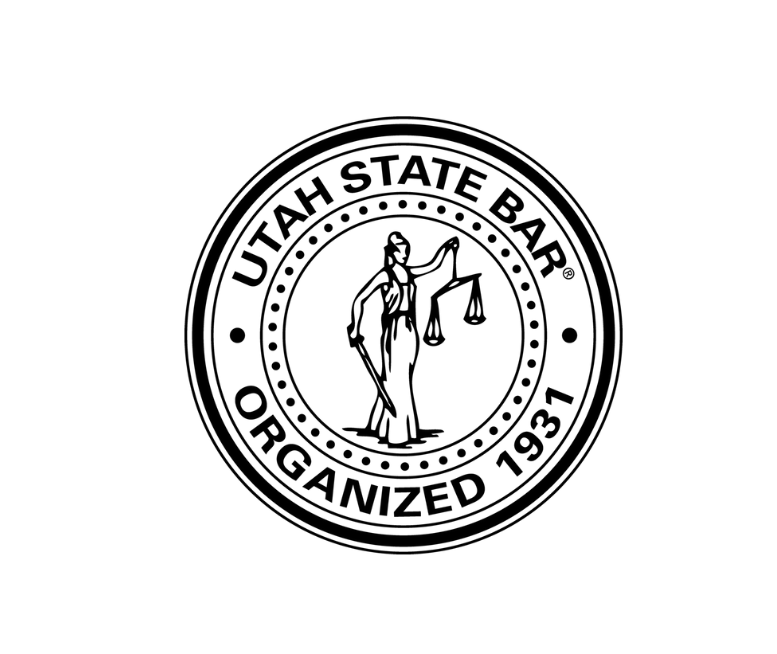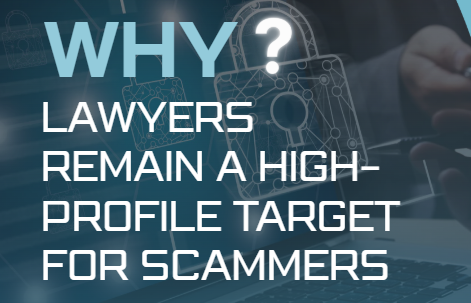Each year, the Utah State Bar Fall Forum celebrates individuals nominated by their peers whose careers reflect the highest standards of professionalism, service, and integrity. This year’s distinguished award recipients exemplify what it means to serve justice, mentor others, and advance the rule of law. We proudly pay tribute to Jonathan O. Hafen, Wendy M. Brown, Thomas R. Barton, F. Joseph Paldino, and Brandon Owen.
__________________
Jonathan O. Hafen: Lawyer of the Year
 Jonathan O. Hafen, a partner at Parr Brown Gee & Loveless, has spent his distinguished career at the intersection of commercial litigation, public service, and community leadership. A skilled trial lawyer, Jon has handled complex disputes involving investor fraud and business ownership, most notably serving as court-appointed Receiver in the Rust Rare Coin Ponzi scheme—a massive fraud case in which he and his team have recovered over $50 million for victims to date.
Jonathan O. Hafen, a partner at Parr Brown Gee & Loveless, has spent his distinguished career at the intersection of commercial litigation, public service, and community leadership. A skilled trial lawyer, Jon has handled complex disputes involving investor fraud and business ownership, most notably serving as court-appointed Receiver in the Rust Rare Coin Ponzi scheme—a massive fraud case in which he and his team have recovered over $50 million for victims to date.
A former clerk to Chief Judge Monroe G. McKay of the Tenth Circuit and a veteran of Sidley Austin’s Chicago office, Jon brings both intellectual rigor and practical wisdom to his practice. His dedication to the profession extends far beyond the courtroom: he recently completed his term as National President of the Federal Bar Association, chairs the Utah State Bar’s CLE Advisory Committee, and serves on multiple boards, including the Utah Center for Legal Inclusion and the Bar’s Leadership Academy.
Jon’s leadership extends to civic life as well. He chairs the Tuacahn Center for the Arts Board, co-chairs the Women’s Leadership Institute, and serves on the Salt Lake Chamber’s Executive Board. His founding role in Utah Lawyers for Good Policy reflects his belief in the power of the legal community to shape thoughtful, nonpartisan dialogue on issues affecting Utah.
Widely regarded as a mentor and role model, Jon was the inaugural recipient of the Charlotte Miller Mentoring Award and has been honored by organizations including the Salt Lake Chamber, BYU Law School, and the Federal Bar Association. His example reminds us all that true professionalism is measured not just by achievement, but by service.
Wendy Brown: The Charlotte Miller Outstanding Mentoring Award
 At the Utah Indigent Appellate Defense Division, Wendy Brown leads with passion, precision, and purpose. As head of the Criminal Appeals Division and the Division’s law clerk program, Wendy has dedicated her career to ensuring that indigent defendants receive the highest quality appellate representation—a mission that embodies the very heart of equal justice.
At the Utah Indigent Appellate Defense Division, Wendy Brown leads with passion, precision, and purpose. As head of the Criminal Appeals Division and the Division’s law clerk program, Wendy has dedicated her career to ensuring that indigent defendants receive the highest quality appellate representation—a mission that embodies the very heart of equal justice.
A graduate of Creighton University School of Law, magna cum laude, Wendy’s path to public defense was shaped by a series of appellate clerkships with the Utah Court of Appeals, where she honed her legal analysis and deep respect for the rule of law. Her mentors—Judges Gregory K. Orme, Pamela T. Greenwood, and David N. Mortensen—helped instill the values she now imparts to her own mentees.
When IADD began handling in-house appeals, Wendy became the Division’s first appellate attorney, playing a pivotal role in building its programs and culture from the ground up. She also serves on the Utah Supreme Court’s Advisory Committee on the Rules of Evidence and the Executive Committee of the Bar’s Appellate Practice Section, where she formerly served as chair.
Her leadership and advocacy ensure that the promise of justice is not reserved for the few but made accessible to all—a legacy that strengthens Utah’s legal system at its very foundation.
Thomas R. Barton: The James Lee Outstanding Mentoring Award
 Few attorneys embody the breadth and depth of courtroom excellence like Thomas R. Barton, litigation practice co-chair at Parsons Behle & Latimer. Since beginning his career in 1994, Tom has developed one of the most versatile and respected litigation practices in the Intermountain Region.
Few attorneys embody the breadth and depth of courtroom excellence like Thomas R. Barton, litigation practice co-chair at Parsons Behle & Latimer. Since beginning his career in 1994, Tom has developed one of the most versatile and respected litigation practices in the Intermountain Region.
His experience spans contract and corporate disputes, real property issues, professional liability, tax and estate controversies, natural resource litigation, employment matters, and statutory claims. Representing both plaintiffs and defendants, he has tried cases in state and federal courts, the U.S. Tax Court, and before numerous administrative bodies. His advocacy has also reached the Utah Supreme Court, the Utah Court of Appeals, and the Tenth Circuit Court of Appeals.
Beyond his advocacy, Tom has served the courts as a trusted receiver in complex cases involving securities and consumer fraud—roles that speak to his fairness, analytical rigor, and commitment to the integrity of the legal system. His ability to assess claims, establish facts, and navigate complex procedural landscapes makes him a true steward of justice.
Before joining Parsons Behle & Latimer in 2019, Tom held leadership positions at two prominent Salt Lake City firms, including serving as president of one. His long-standing dedication to excellence continues to elevate Utah’s litigation community.
F. Joseph Paldino: The Paul Moxley Outstanding Mentoring Award
 F. Joseph Paldino has built an extraordinary career defined by leadership, mentorship, and innovation in immigration law. As a Partner at Fragomen and head of the firm’s Salt Lake City office, Joseph manages a team that bridges clients across the New York and Utah offices, offering strategic immigration guidance to global organizations navigating an increasingly complex legal environment.
F. Joseph Paldino has built an extraordinary career defined by leadership, mentorship, and innovation in immigration law. As a Partner at Fragomen and head of the firm’s Salt Lake City office, Joseph manages a team that bridges clients across the New York and Utah offices, offering strategic immigration guidance to global organizations navigating an increasingly complex legal environment.
With nearly 30 years of experience, Joseph develops customized immigration programs for clients across industries, advising on everything from temporary visas and permanent residency to compliance, citizenship, and the immigration implications of mergers and acquisitions. His approach—rooted in trust, collaboration, and adaptability—has earned him widespread respect in both the business and legal communities.
A proud graduate of Fordham University and St. John’s University School of Law, where he earned his J.D. cum laude, Joseph’s professional life reflects a deep commitment to service. He is known not only for his expertise but also for his mentorship of the next generation of immigration professionals, empowering them to uphold the highest ethical and professional standards.
__________________
Brandon Owen: Special Service Award
 Brandon Owen is an intellectual property attorney and shareholder at Ray Quinney & Nebeker, focused on litigation and counseling across trademarks, copyrights, trade dress, and patents. He is also a registered patent attorney. He previously clerked at the U.S. Court of Appeals for the Federal Circuit for Judge Randall R. Rader. A former University of Utah men’s tennis player, Brandon channels the discipline, teamwork, and coaching mindset he learned on court into his service. He has coached his four sons, two who currently play for the BYU Men’s Tennis team, a third will join the team next fall, and a fourth will compete for Southern Virginia University, and he volunteers to broaden access to healthy recreation.
Brandon Owen is an intellectual property attorney and shareholder at Ray Quinney & Nebeker, focused on litigation and counseling across trademarks, copyrights, trade dress, and patents. He is also a registered patent attorney. He previously clerked at the U.S. Court of Appeals for the Federal Circuit for Judge Randall R. Rader. A former University of Utah men’s tennis player, Brandon channels the discipline, teamwork, and coaching mindset he learned on court into his service. He has coached his four sons, two who currently play for the BYU Men’s Tennis team, a third will join the team next fall, and a fourth will compete for Southern Virginia University, and he volunteers to broaden access to healthy recreation.
For years, Brandon and his sons have taught tennis and pickleball at the elementary school in Bluff, Utah, where roughly 98% of students are Navajo. After tribal leaders shared with Brandon and his family their concerns about a diabetes epidemic on the Navajo Nation, Brandon has visited Bluff elementary over the years, painting tennis and pickleball lines at the school and community center, donating racquets and supplies, organizing after-school clinics and activities, fundraising for supplies, and visiting the Navajo Senior Center to support active living for elders. Many of the Navajo youth travel via bus an hour each day to get to Bluff Elementary and many of the youth eat all three meals at the school.
Closer to home, Brandon has taught court skills and life skills to justice-involved youth through Judge Valdez’s “It Takes a Village”/Tennis ad Tutoring program at Liberty Park and has devoted countless hours assisting Brighton High School tennis and coaching youth teams. He believes the talents we cultivate in our professions and passions carry an obligation to teach, contribute, and lift others, and he strives to do exactly that, one lesson, one clinic, and one community at a time.
__________________
Celebrating Excellence and Service
We congratulate each of these remarkable attorneys on their well-deserved recognition and thank them for their enduring contributions to Utah’s legal community.
*AI assisted with the writing of this blog.
 Borden and Carrington spotlight several widely used platforms, such as ChatGPT, Microsoft Copilot, Zoom AI Companion, Notebook LM, Notion AI, and others. They talk about each platform offering targeted capabilities that can streamline research, expedite drafting, support matter organization, or clarify complex concepts for clients and colleagues. Whether used to summarize lengthy documents, generate issue-spotting outlines, or organize case-related materials, these systems can help lawyers reclaim valuable time for higher-order analysis and client engagement.
Borden and Carrington spotlight several widely used platforms, such as ChatGPT, Microsoft Copilot, Zoom AI Companion, Notebook LM, Notion AI, and others. They talk about each platform offering targeted capabilities that can streamline research, expedite drafting, support matter organization, or clarify complex concepts for clients and colleagues. Whether used to summarize lengthy documents, generate issue-spotting outlines, or organize case-related materials, these systems can help lawyers reclaim valuable time for higher-order analysis and client engagement.
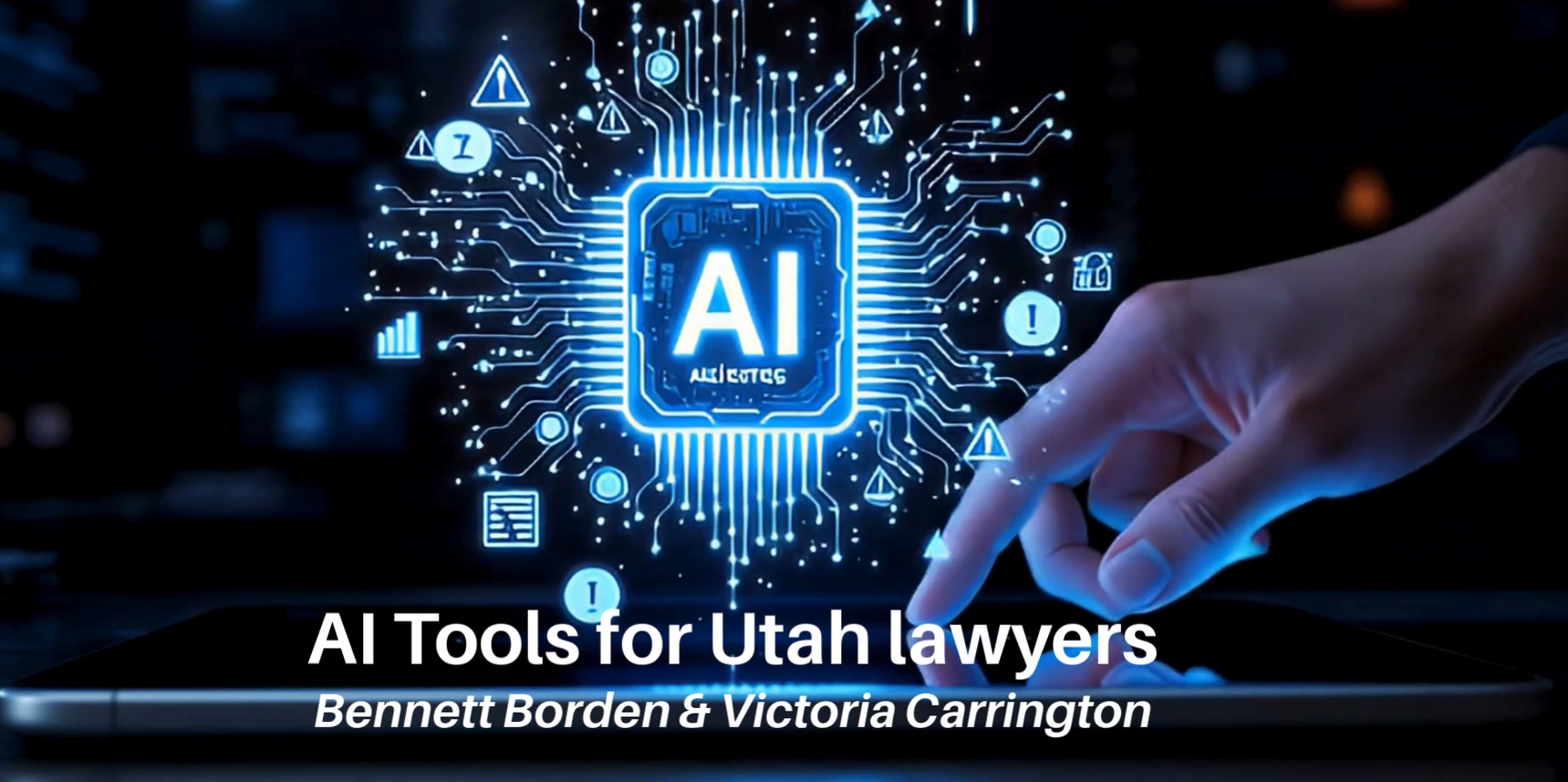
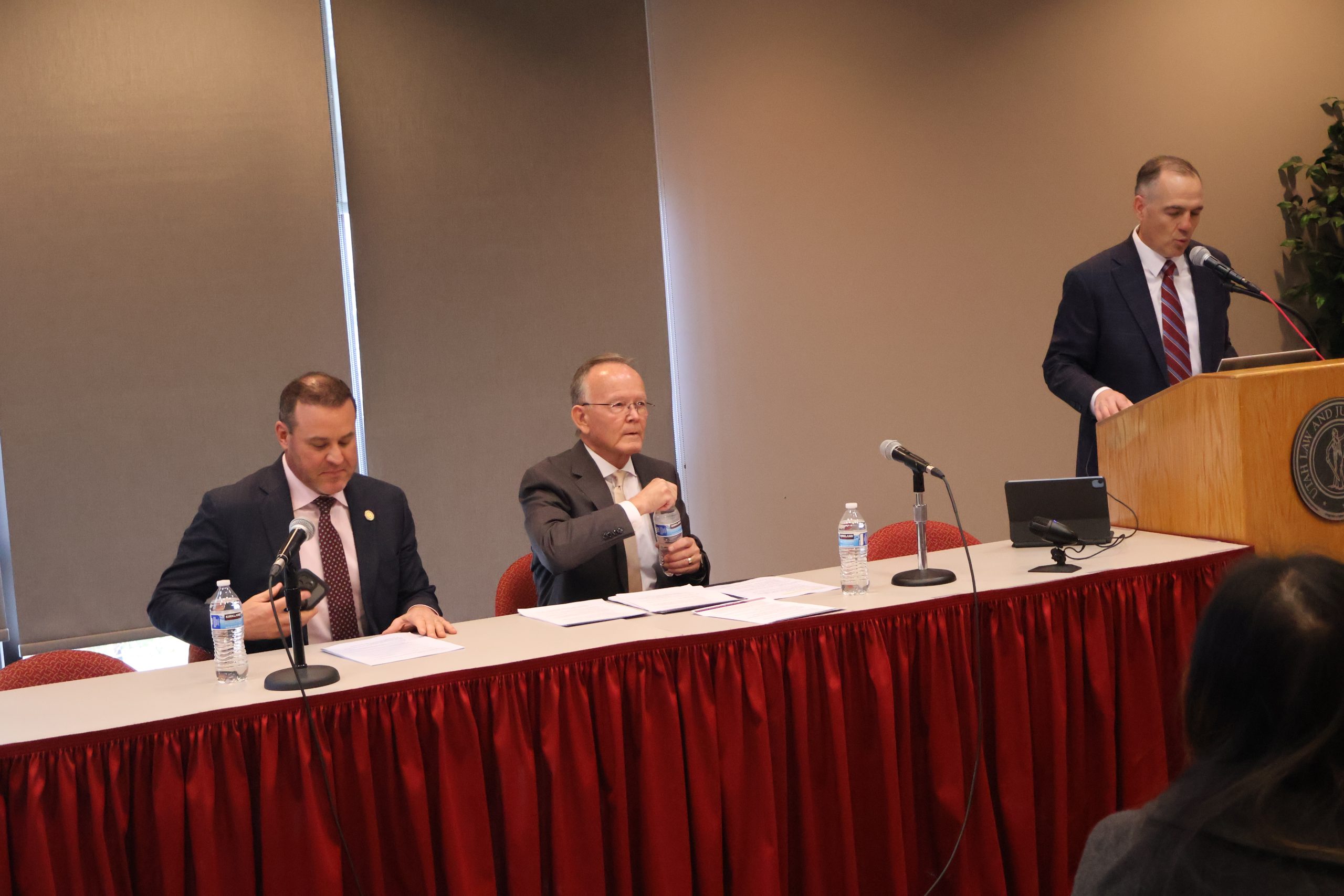
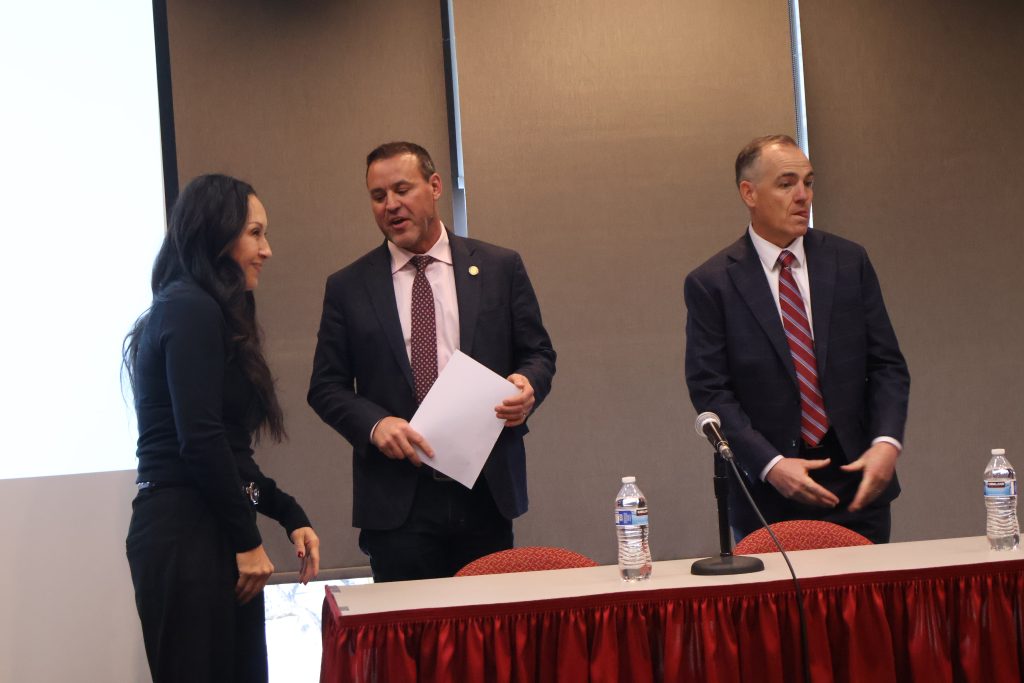
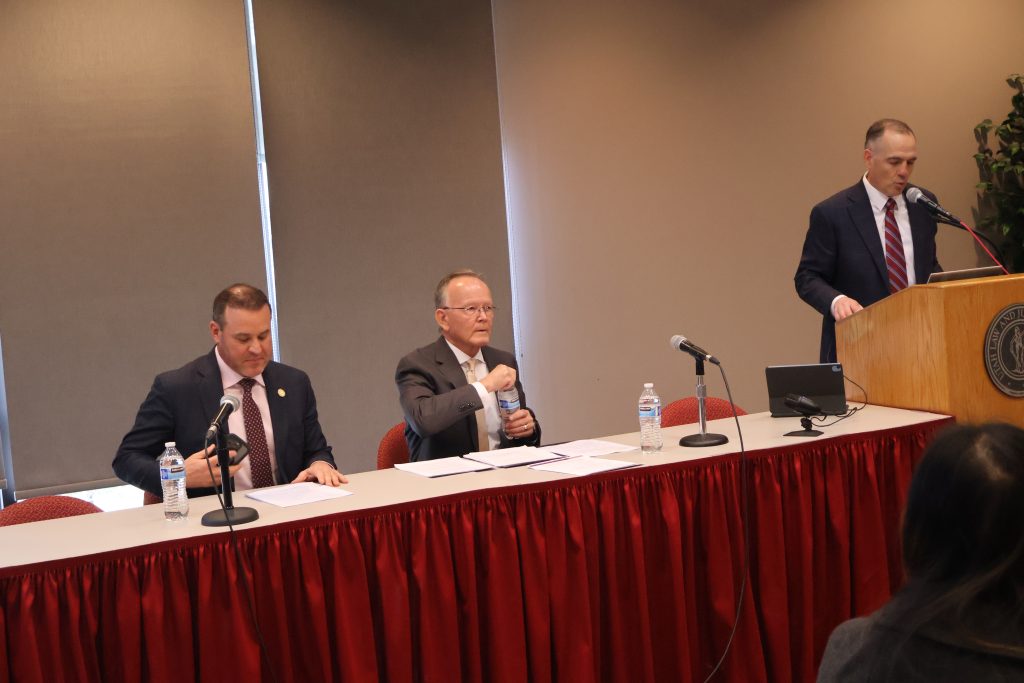

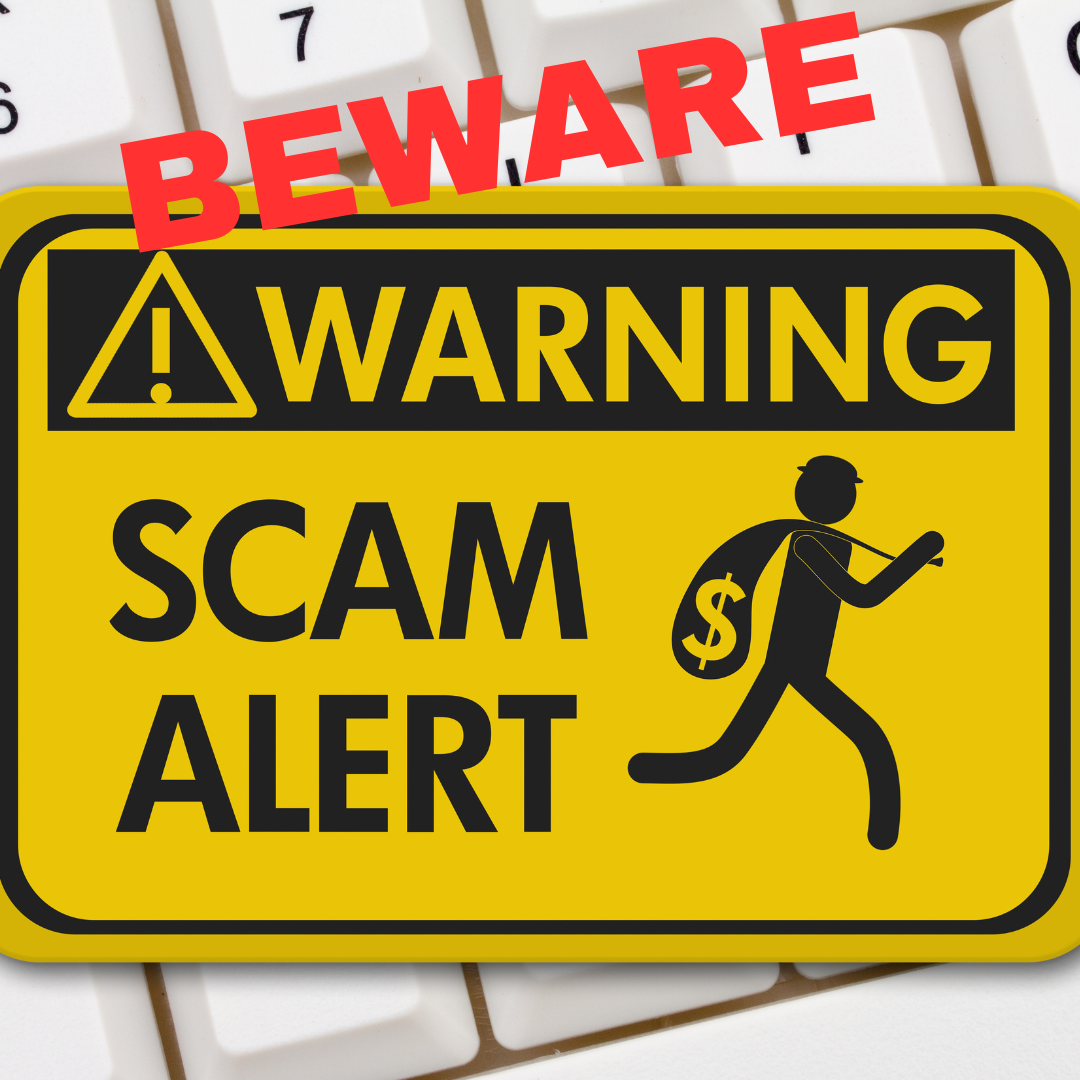
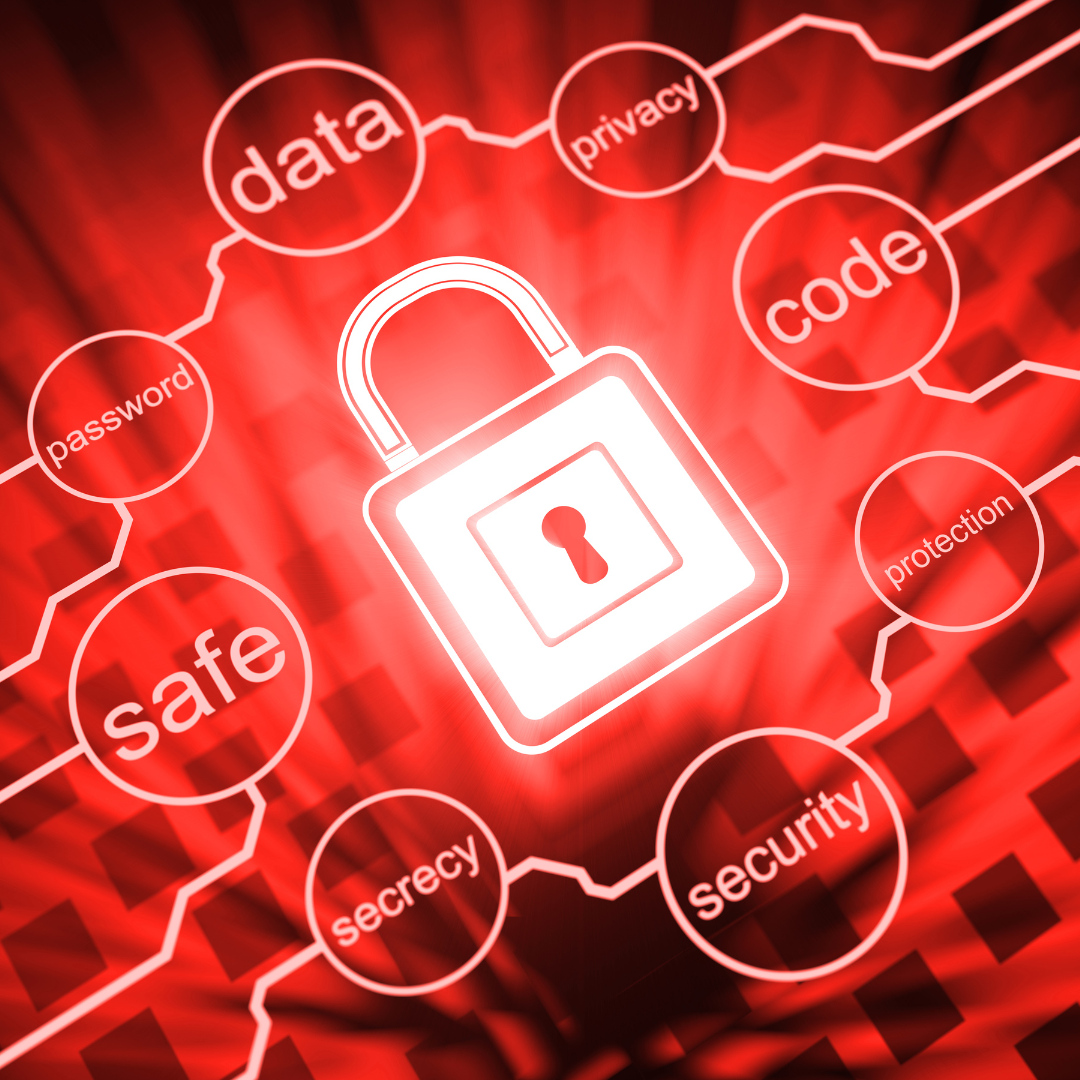



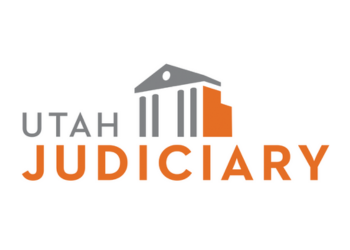

 Jonathan O. Hafen, a partner at Parr Brown Gee & Loveless, has spent his distinguished career at the intersection of commercial litigation, public service, and community leadership. A skilled trial lawyer, Jon has handled complex disputes involving investor fraud and business ownership, most notably serving as court-appointed Receiver in the Rust Rare Coin Ponzi scheme—a massive fraud case in which he and his team have recovered over $50 million for victims to date.
Jonathan O. Hafen, a partner at Parr Brown Gee & Loveless, has spent his distinguished career at the intersection of commercial litigation, public service, and community leadership. A skilled trial lawyer, Jon has handled complex disputes involving investor fraud and business ownership, most notably serving as court-appointed Receiver in the Rust Rare Coin Ponzi scheme—a massive fraud case in which he and his team have recovered over $50 million for victims to date. At the Utah Indigent Appellate Defense Division, Wendy Brown leads with passion, precision, and purpose. As head of the Criminal Appeals Division and the Division’s law clerk program, Wendy has dedicated her career to ensuring that indigent defendants receive the highest quality appellate representation—a mission that embodies the very heart of equal justice.
At the Utah Indigent Appellate Defense Division, Wendy Brown leads with passion, precision, and purpose. As head of the Criminal Appeals Division and the Division’s law clerk program, Wendy has dedicated her career to ensuring that indigent defendants receive the highest quality appellate representation—a mission that embodies the very heart of equal justice. Few attorneys embody the breadth and depth of courtroom excellence like Thomas R. Barton, litigation practice co-chair at Parsons Behle & Latimer. Since beginning his career in 1994, Tom has developed one of the most versatile and respected litigation practices in the Intermountain Region.
Few attorneys embody the breadth and depth of courtroom excellence like Thomas R. Barton, litigation practice co-chair at Parsons Behle & Latimer. Since beginning his career in 1994, Tom has developed one of the most versatile and respected litigation practices in the Intermountain Region. F. Joseph Paldino has built an extraordinary career defined by leadership, mentorship, and innovation in immigration law. As a Partner at Fragomen and head of the firm’s Salt Lake City office, Joseph manages a team that bridges clients across the New York and Utah offices, offering strategic immigration guidance to global organizations navigating an increasingly complex legal environment.
F. Joseph Paldino has built an extraordinary career defined by leadership, mentorship, and innovation in immigration law. As a Partner at Fragomen and head of the firm’s Salt Lake City office, Joseph manages a team that bridges clients across the New York and Utah offices, offering strategic immigration guidance to global organizations navigating an increasingly complex legal environment. Brandon
Brandon